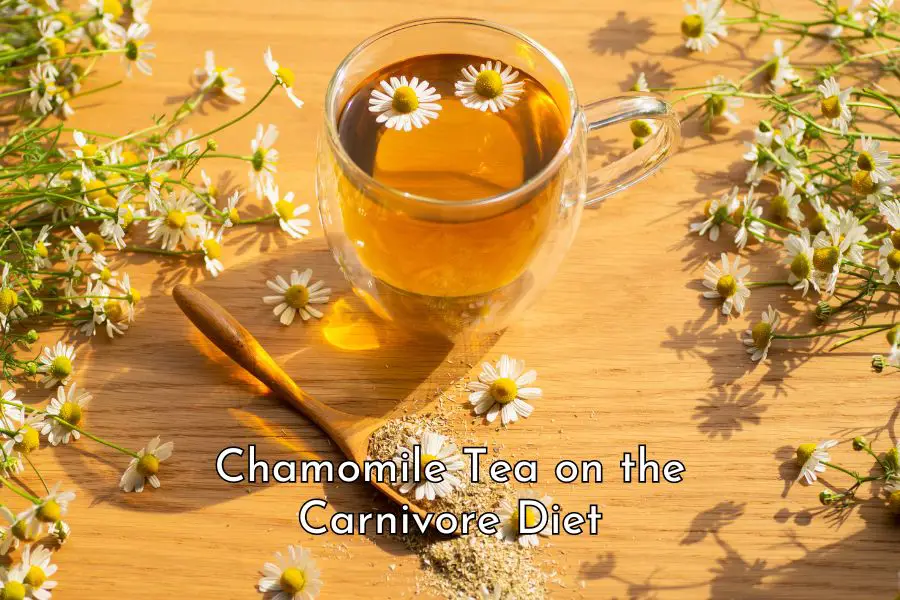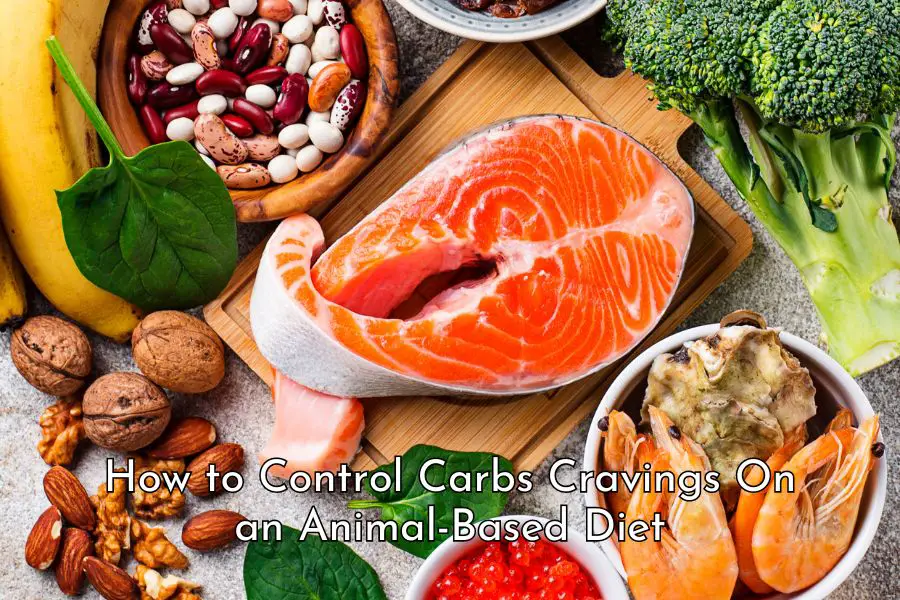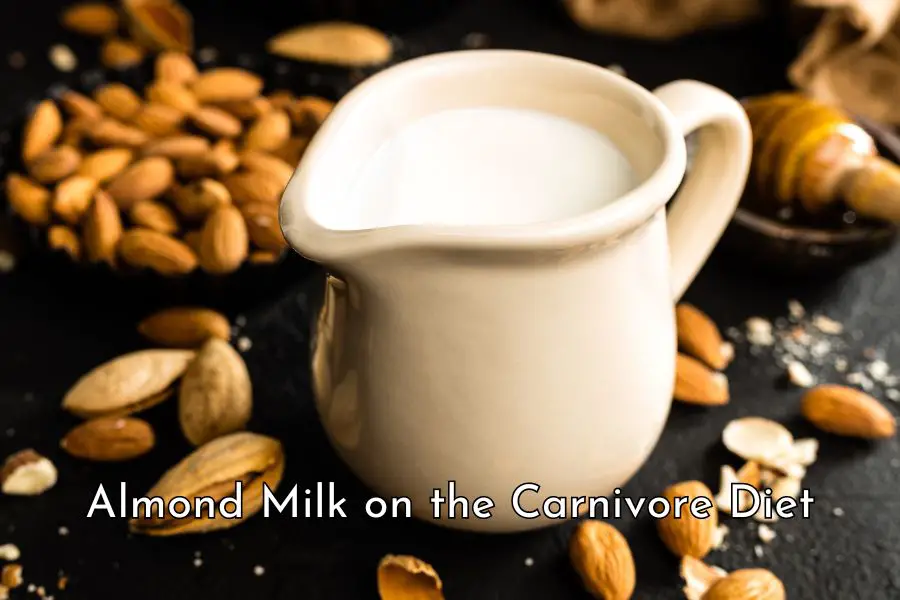Cheese is controversial on the carnivore diet. Some argue that cheese is inflammatory and evolutionary inconsistent and should be avoided. Some think it’s an animal source food and it’s fine to add liberally to your diet. So, is cheese allowed on the carnivore diet?
Cheese is okay on the carnivore diet in moderation for those who can tolerate cheese and dairy products because it is nutritious and rich in calcium and can help meet your calcium need easier.
Eat cheese if you enjoy and can tolerate it. However, you don’t need to purposely add cheese to your diet because you can get all the necessary nutrients you need if you already eat nose-to-tail and eat a variety of animal source food.
The remainder of the post covers how cheese is made, nutritional profiles of some common cheese, whether cheese is okay on the carnivore diet, who should avoid cheese altogether, and what type of cheese is the best.
How cheese is made?
Cheese is made from milk following the steps below:[1, 2]
- Standardization. Milk from farms first needs to go through a filter and fat, cream or protein may be added to reach a certain standard to produce consistent quality cheese
- Pasteurization. The milk is then heat-treated to kill off dangerous bacteria or organisms that may spoil the cheese
- Adding starter cultures. Starter cultures which contain good bacteria are added to the milk to ferment the natural sugar in milk (lactose) and turn it into lactic acid. Lactic acid is what causes the milk proteins to curdle into lumps and gives them the sour smell. Different types of starter cultures are used to produce different types of cheese
- Coagulation. A coagulant such as natural rennin or rennet, a lab-created equivalent, is added so that the solids in milk can be formed and separated
- Cutting, stirring, heating, salting and pressing. After coagulating, the curds are cut, stirred and heated to allow whey and moisture to come out. It is then salted and shaped using molds or pressed into a hoop and brined
- Aging. Once the cheese is shaped, it can be aged from a few days to a few years in a controlled environment. The aging process makes the cheese harden and enhance its flavor.
Cheese’s nutrition
Below is the nutrition information of some common types of cheese.

As you can see, cheese is high in proteins and good fats (including omega 3 fatty acids) and low in carbohydrates.
Cheese is also a very good source of calcium and contains a high amount of a number of essential vitamins and minerals such as vitamin A, vitamin B2, vitamin B6, vitamin B12, phosphorous, zinc, and selenium.
Is cheese okay on the carnivore diet?
Cheese is okay on the carnivore diet in moderation for those who can tolerate cheese and dairy products because it is nutritious and rich in calcium and can help meet your calcium need easier.
Eat cheese if you enjoy and can tolerate it. However, you don’t need to purposely add cheese to your diet because you can get all necessary nutrients if you already eat nose-to-tail and eat a variety of animal source food.
Let’s have a look at the reasons for this recommendation below.
1. Cheese is nutritious
As can be seen in the above table, cheese is nutritious. It is high in proteins and good fats and is a good source of a wide range of vitamins and minerals.
As an animal source food, it is free from anti-nutrients and highly bioavailable. If you buy unprocessed cheese, it is also free of preservatives and other additives.
Furthermore, many people are lactose intolerant because they don’t have the lactase enzyme to digest lactose (the sugar in milk). But they may be able to tolerate cheese because it has very little lactose left. The bacteria have done a good job of converting lactose into lactic acid during the fermentation process.
If you can tolerate cheese well, it’s definitely okay to include it in your carnivore diet.
2. Cheese is rich in calcium and can help meet your calcium need on the carnivore diet
Cheese is a great source of calcium and can help you meet your calcium need on the carnivore diet much easier.
The daily calcium intake recommended by the Institute of Medicine is 1 gram per day.[3] A 100 gram serving of cheddar cheese will deliver 721 mg of calcium, meeting 70% of this recommended intake. A 100 gram serving of parmesan cheese will deliver more than 100% of this recommended intake.
Muscle meat alone has very little calcium, for example, a 100-gram beef steak has about 16 mg of calcium.
However, remember that this is the recommendation for the general population who are not on the carnivore diet. Your calcium need on the carnivore diet is likely to be lower due to better absorption.
Because carnivore food is free from anti-nutrients, the calcium absorption rate is likely to be much higher compared to plant food. For example, spinach is rich in calcium too but it is also high in oxalates which bind with calcium and hinder absorption. Spinach’s bioavailability is only 5% compared to 30% for dairy products.[4, 5]
In short, you probably don’t need to consume as much calcium on the carnivore diet. If you can tolerate cheese, add a small amount to your diet and it’ll help you meet your calcium needs much easier.
3. Cheese should be consumed in moderation
Although some people may say they are okay with cheese, consuming it in excess or over a long period of time may potentially become an issue due to a number of controversial factors discussed below.
Lactose
Lactose is the sugar in milk. To digest the milk sugar, you need lactase enzyme. The lactose-free milk you see in the supermarket is just ordinary milk with lactase enzyme added.
A majority of adults lose the ability to produce sufficient lactase to digest milk properly.
It is estimated that globally, about 68% of the population is lactose intolerant but the prevalence is much lower in some European regions (about 28%) compared to the Middle East (about 70%). [6]
Some people who are lactose intolerant can eat cheese but some still can’t because even though the fermentation process substantially reduces the lactose content, there is still some lactose left. Depending on how it is made, some cheese may still have enough lactose left to cause problems for some people.
Milk proteins
The two types of milk proteins are casein and whey.
Whey protein, though fast absorbed by the body, is potentially problematic when consumed too much because it can stimulate insulin release.[7]
The main controversy lies with the other protein, casein.
Casein has two variants, A1 and A2. The only difference between A1 and A2 is a difference in the 67th amino acid in the chain. Most modern farmed cows produce A1 casein while certain cow breeds (Charolais, Guernsey, Jersey, and Limousin), buffalo, goats, and sheep produce A2 casein.
In humans, digestion of A1 casein, but not the alternative A2 casein, releases beta-casomorphin-7, which activates μ-opioid receptors expressed throughout the gastrointestinal tract and body. A1 casein has been linked to a number of health problems such as type 1 diabetes, celiac disease, and some other autoimmune conditions in some observational studies.[8, 9, 10, 11]
A1 casein is thought to be the reason why some people have problems with cows’ milk but are okay with goat and sheep milk which contain mostly A2 casein.[12]
The a2 Milk Company Limited was established in 2000 to commercialize A2 brand milk which sells for a lot more than general cow’s milk.
However, a comprehensive investigation into A1 and A2 protein controversy by Truswell (2005) found that “there is no convincing or even probable evidence that the A1 β-casein of cow milk has any adverse effect in humans“. There is no evidence that A1 casein is a factor causing type 1 diabetes or heart disease.[13]
The European Food Safety Authority also published a comprehensive 107-page scientific review in 2009 which concluded that available evidence does not indicate A1 casein consumption is the cause of any non-communicable disease.[14]
While we wait for further research on this, in light of the above controversies and because for most of human history, humans did not have access to another species’ milk, even if you are okay with cheese, to be on the safe side, consume it in moderation.
My interpretation of moderation is having it two to three times a week and having only one recommended serving each time. The suggested serving size for cheese is around 25 grams, so a couple of small slices of cheese should be the limit.
4. You don’t need to purposely add cheese on your carnivore diet
People eat cheese because it’s a good source of calcium and possibly out of fear that they may not get enough calcium on the carnivore diet eating animal-based food only.
As mentioned above, because animal-based food is free from anti-nutrients which prevent efficient absorption of calcium and other minerals, you don’t need as much calcium on the carnivore diet.
If you are concerned, you can take a bonemeal supplement which you can easily make yourself using leftover bones from bone broth. Here is the instruction on how to make bonemeal.
Another nutrient that cheese is a good source of is vitamin K. However, there is plenty of vitamin K in beef liver. If you eat beef liver and pate, you will get enough vitamin K for your body’s needs.
Like calcium, vitamin K1 from plant sources is poorly absorbed by the body. Vitamin K2 from animal source food has a much higher absorption rate.
In summary, you don’t need to purposely go out and add cheese to your diet if you already practice eating nose to tail and eating a variety of animal food. You can get all nutrients that your body needs from animal-based food.
However, if you love cheese and don’t have any apparent health issues, it’s perfectly fine to eat it on occasion, but please don’t overdo it. Cheese is a byproduct of milk which is intended for a growing animal. When you’ve finished growing, have it sparingly.
Who should avoid cheese on the carnivore diet?
People listed below should definitely avoid cheese on the carnivore diet.
Those who are dairy sensitive
It’s a no-brainer that if you suffer from digestive problems eating dairy products, you should avoid them.
However, it’s important to figure out exactly what it is that you are allergic to, whether it is the food itself or the way it is processed.
To find out if you have issues with cheese and dairy products in general, start an elimination diet with just beef, salt, and water and gradually reintroduce food one by one. Please check out this post on how to test individual food for intolerance.
When you introduce dairy products to test out, start with the best product you can afford. Fresh raw milk is probably the best to start with. Raw milk has many beneficial properties that help digestion but they are destroyed by pasteurization. If you would like to know more about milk on the carnivore diet, please read this post.
Try out different types of milk too like cow, goat, sheep, and buffalo milk and see which one you are okay with. After milk, you can test other products like yogurts and cheese.
Those who have health issues and are trying to fix them with the carnivore diet
If you have problems like leaky gut syndromes or autoimmune conditions (eczema, psoriasis, celiac, multiple sclerosis, etc.), stay with the best and safest food which is ruminant meats and their organ meats.
I have written in detail in this post as to why ruminant meats and their organ meats are the best to eat nowadays.
If you have any concerns about your calcium intake, save some bones from your bone broth and add one to two pieces to your meals a day. You can also make bonemeal easily from the leftover bones when making bone broth. By doing this, you will have no problems getting 1 gram of calcium a day.
Wait until you’ve fully recovered before testing out if you can handle cheese and other dairy products.
For your information, the ICMNI in Hungary which has been using a high fat animal-based diet to treat many chronic diseases including diabetes, autoimmune diseases, cancer and intestinal permeability exclude dairy in their protocol.
Patients with autoimmune conditions, cancer and intestinal permeability are put on a strict carnivore diet that has only meat, fat and organ meat.
Because their protocol is derived from the clinical data of thousands of patients, I consider this a high quality recommendation.
Those who are trying to lose weight
If you are trying to lose weight, it’s best to stay away from cheese because it is high in calories and has a low satiety level.
Cheese is very high in calories. For example, 100 grams of cheddar cheese has over 400 calories whereas 100 grams of lean beef has only 151 calories.
Cheese also has a low satiety level compared to muscle meat. It is especially hard to portion-control when you love cheese.
You can certainly lose weight on a high protein and high fat diet, but a high protein and moderate to low fat diet will be a lot more effective for weight loss.
Choosing the best cheese
It’s best to get full fat hard cheese from grass-fed ruminants.
Cheese that has gone through a long fermentation process (e.g. Swiss, parmesan, cheddar, Manchego, gouda) is likely to be better for digestion than otherwise because those beneficial bacteria have already done some digesting work for you. Their flavors tend to be better too.
Avoid processed cheese and cheese with additives or infusions.
Avoid shredded cheese too, it often contains preservatives to prevent mold growth and additives (e.g. potato starch and cellulose) to keep the cheese from clumping together.
Read the labels carefully when shopping. Generally, look for cheese that only has milk, salt, cultures, and enzyme in the ingredient list.
If you have a delicate digestive system (e.g. after healing your leaky gut), get cheese made from A2 milk like goat, sheep, and buffalo, it’s more gentle on the stomach according to anecdotal evidence.
If you find this post helpful, please consider sharing this post and my site with your family, friends, and followers. That would be much appreciated. Please also check out my library of articles on the carnivore diet here which is updated regularly.
Disclaimer: The information in this post is for reference purposes only and not intended to constitute or replace professional medical advice. Please consult a qualified medical professional before making any changes to your diet or lifestyle.
Photo credit: Mohamed Hassouna on Unsplash





